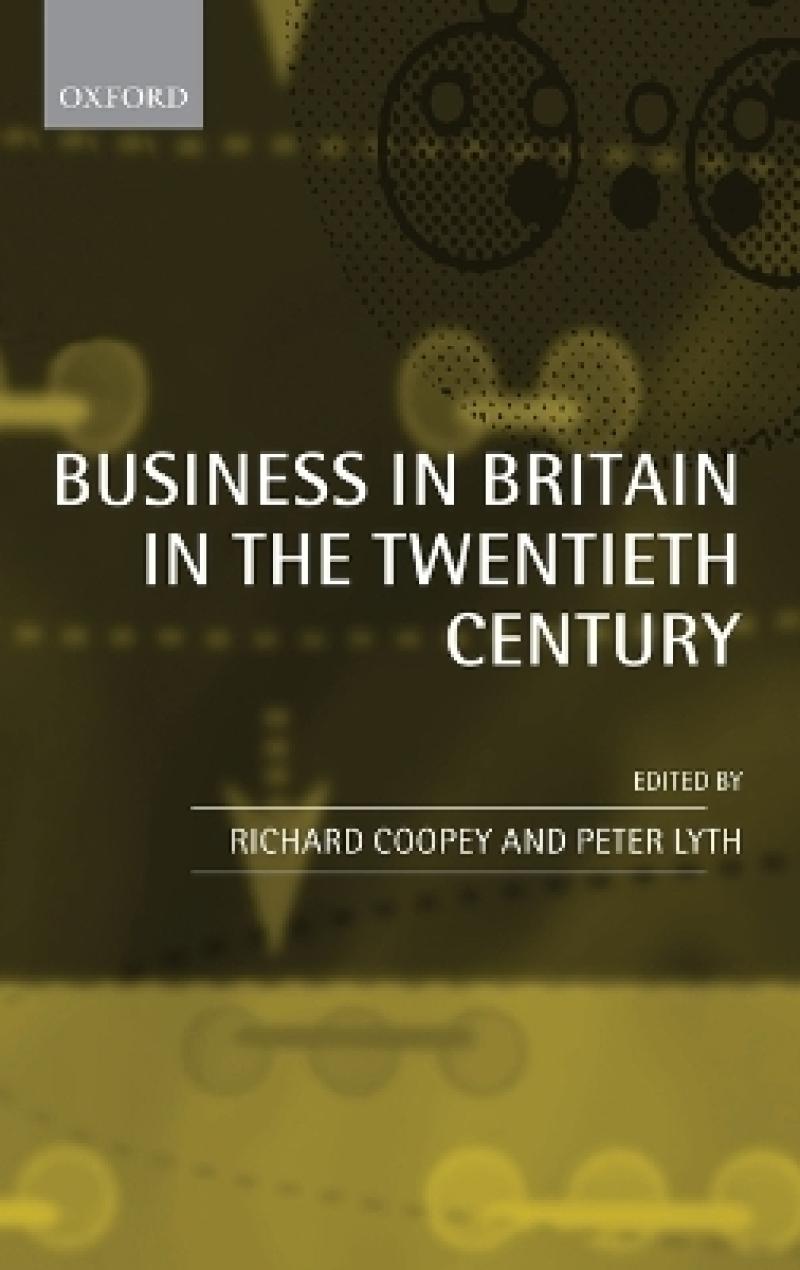This collection of fresh, incisive scholarship, by some of the leading business historians, critically examines the nature of economic recovery in Britain in recent years. Covering the key issues for business history in this period, the book confronts the traditional literature on conclusions of relative decline, and monocausal, simplistic explanations. It provides an impressive range of studies forming a platform for a new debate on the nature of British business in the 20th century.
Themes include productivity, management, research and development, marketing, regional clusters and networks, industrial policy, the use of technology, and gender. Sector studies include newer, post-war hopefuls and successes including:
* aerospace,
* IT,
* retail,
* banking,
* overseas investment,
* the creative industries.
The book demonstrates that our understanding of the historic strengths and weaknesses of business in Britain, and the shifting balance between sectors of the economy, has until now been poorly understood, and that British business history needs a fundamental reappraisal.
Les mer
This collection of fresh, incisive scholarship, by some of the leading business historians, critically examines the nature of economic recovery in Britain in recent years. Covering the key issues for business history in this period, this overview confronts the traditional literature's conclusions and simplistic explanations.
Les mer
Introduction: British Business in the Twentieth Century: What Sort of Decline, What Sort of 'Renaissance'? ; 1. Strategic Games, Scale, and Efficiency, or Chandler goes to Hollywood ; 2. Industrial Policy in Twentieth Century Britain ; 3. Business in the Regions: From 'Old' Districts to 'New' Clusters? ; 4. Elites, Entrepreneurs, and British Business in the Twentieth Century ; 5. Invisible Entrepreneurs? Women and Business in Twentieth Century Britain ; 6. From a Solution to a Problem? Overseas Multinationals in Britain during Economic Decline and Renaissance ; 7. British Management since 1945: 'Renaissance' and Inertia, Illusions and Realities ; 8. Not 'Decline and Revival': An Alternative Narrative on British Post-War Productivity ; 9. Marketing Management in Britain: What Is the Evidence for 'Failure'? ; 10. British Retail Banking in the Twentieth Century: Decline and Renaissance in Industrial Lending ; 11. The Decline and Renewal of British Multinational Banking ; 12. Back to the Future: The Aircraft and IT Industries in Britain since 1945 ; 13. Industrial Research and the Employment of Scientists in British Industry before the 1970s ; 14. Increasing Value? Modern British Retailing in the Late Twentieth Century ; 15. Predicting, Providing, Sustaining, Integrating? British Transport Policy since 1945 ; 16. The Film Industry in Twentieth Century Britain: Consumption Patterns, Government Regulation, and Firm Strategy ; 17. British Sport Transformed: Sport, Business, and the Media since 1960 ; 18. Ethics, Religion, and Business in Twentieth Century Britain
Les mer
Leading business historians reassess our understanding of the strengths and weaknesses of 20th century British business
Themes include productivity, management, research and development, marketing, regional clusters and networks, industrial policy, the use of technology, and gender
Features newer, successful post-war industry sectors from aerospace to the creative industries
Impressive range of studies which together consider the nature of British business in the 20th century
Les mer
Richard Coopey teaches history across a range of economic, social, technological and political areas. His current research interests include the history of the popular music industry, and the economic history of water resources.
Peter Lyth has taught economic and transport history in Britain, Israel and the United States. His research interests are chiefly in transport and airline history, as well as aircraft and aero engine manufacturing.
Les mer
Leading business historians reassess our understanding of the strengths and weaknesses of 20th century British business
Themes include productivity, management, research and development, marketing, regional clusters and networks, industrial policy, the use of technology, and gender
Features newer, successful post-war industry sectors from aerospace to the creative industries
Impressive range of studies which together consider the nature of British business in the 20th century
Les mer
Produktdetaljer
ISBN
9780199226009
Publisert
2009
Utgiver
Oxford University Press
Vekt
860 gr
Høyde
240 mm
Bredde
164 mm
Dybde
29 mm
Aldersnivå
G, 01
Språk
Product language
Engelsk
Format
Product format
Innbundet
Antall sider
418
